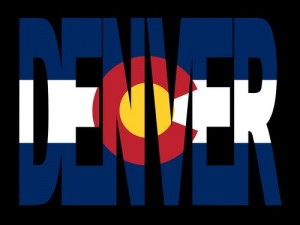
It’s made me think quite a bit about learning in the past little while. We don’t, as a species, know all that much about how we learn — and, from my seat in Denver, that’s kind of a conundrum for ‘my people’, the web designers. Web designers, whether they recognize it or not, have a close relationship with the process of learning — after all, almost every web page in the world is designed to teach. Whether it’s overt like Wikipedia, or extremely well-masked like one of those horrible 14-page sales letters that seems entirely focused on getting you to buy something, no website can ever accomplish it’s goal without first getting information into your brain.
That’s why I think that Denver, web designers, and in fact most people could benefit from a little bit of meta-learning. Yes, learning about learning. I went there. Tough it out.
Bloom’s Hierarchy and Kuhlthau Stages
Way back in 1956, Benjamin Bloom identified 6 levels of learning. Knowledge leads to Comprehension leads to Application leads to Analysis leads to Synthesis leads to Evaluation. It’s a useful progression, but it lacks the personal information that a web designer needs to take advantage of it, so let’s add to it Carol Kuhlthau’s six stages of learning.
According to Kuhlthau, the six stages of learning are:
- Initiation — the person becomes aware that they need information. Generally, it’s assumed that visitors to your website have this awareness already, but there are circumstances in which you can generate this kind of awareness as well.
- Exploration — the person sees the options that are available to choose between. Quite often, especially online, ‘analysis paralysis’ can set in and make a learner quit at this stage because they can’t decide which of the options are worth further pursuit.
- Formulation — the person sees that they’re going to have to create further requirements before they’re able to make a final selection, and they make decisions to narrow the field. Confidence returns.
- Collection — the person has clearly articulated their precise needs and is able to evaluate potential solutions. They gather all available solutions and begin to weigh them based on relevant criteria.
- Action — the person makes their final decision and acts on it based on their understanding.
Many web designers assume that their surfers are at the Collection stage, and craft their entire webpage toward moving their reader from Collection to Action — but statistically, most people are going to be at Exploration or Formulation when they arrive at your site.
Does that mean that you should build a website that encourages people to go read other options and learn more, hoping they’ll return to your site for their Action? Not at all — but it does mean that by understanding what people are looking for at each stage of their learning process, we can design websites that guide them through the whole thing. This, by no coincidence whatsoever, also results in websites and web content that is useful, user-friendly, and entirely Google-appropriate.


Leave a Reply: